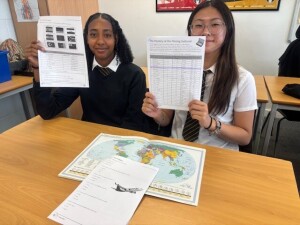Geography

CURRICULUM ETHOS
The Geography curriculum at Eastbrook School aims to inspire curiosity about the world, fostering a lifelong fascination with the world and its people through engaging learning experiences.
Students will develop their knowledge of global places, investigate how features change over time and develop their ability to analyse local and global issues to become informed, curious and analytical citizens of the world. The Geography curriculum at KS3 and KS4 will develop knowledge about diverse places and develop understanding about the physical and human processes that shape the Earth's features. Geographical skills will be mastered throughout, equipping students with the ability to collect, analyse, and communicate a range of geographical data using maps, aerial photographs and globes. Students will become critical thinkers analysing real-world problems and solutions, justifying their decisions based on evidence. Finally, students will develop a sense of responsibility and tolerance as their awareness of local and global geographical issues broaden with the need of a sustainable future.
The Geography Curriculum in Summary
Geography gives our students a coherent knowledge and understanding of the world, its people, its composition, its history and its future. Our curriculum enables students to speak like a geographer using high level geographical vocabulary, think like a geographer showing curiosity and fascination about the world, act like a geographer experiencing fieldwork opportunities and read like a geographer taking a fascination in geographical literature. At Key Stage 3 students study a range of topics and are assessed via a mid-term and end of unit assessment with one of these being a Viva examination. In Year 7 students study map skills, the UK, rivers, Brazil and oceans. In Year 8 students study tectonic hazards, globalisation, weather, population and urbanisation and ecosystems. In Year 9 students study coasts, development, climate change, resource management and sustainability. At GCSE, students study the AQA syllabus building on their knowledge, understanding and skills from KS3. In Year 10 students will study natural hazards including tectonic hazards, weather hazards and climate change; the living world including tropical rainforests and cold environments; physical landscapes in the UK including rivers and coasts. In Year 11 students study urban issues and challenges including urbanisation in Rio and the UK; the changing economic world including development in Nigeria and the UK; the challenge of resource management including energy and food management. All GCSE students at KS4 participate in a fieldwork investigation at Southend focusing on coastal management and the impacts of tourism.
An All-Through Curriculum
We recognise that students may start with varying levels of geographical knowledge, so we place a strong emphasis on integrating key concepts and vocabulary throughout our curriculum. This allows all students to build a common language and understanding of geography, which is essential for progressing in the subject. As students progress from KS1 to KS4, they develop a deep knowledge, understanding and appreciation of their local area and its place within the wider world.
KS3 Geography builds on the primary curriculum by taking foundation knowledge of locational place and physical/human geography and developing it with more complex interconnected concepts and a deeper understanding of geographical processes. This transition involves layering knowledge, refining geographical skills and engaging in more sophisticated fieldwork and enquiry-based learning.
Diversity and Inclusion in the Geography Curriculum
Eastbrook provides an ambitious, creative and diverse geography curriculum that inspires intellectual curiosity and fascination about the world and its people. The Geography curriculum extends students interest and awareness far beyond just their local community, but also gaining knowledge on and appreciation of diverse places, people, resources and natural and human environments together with a deep understanding of the earth's key physical and human processes. Through KS3 and KS4 students become global citizens and show a passion and appreciation for the world we live in so that they are able to strive for positive change.
Overall, Geography is used to explore cultural diversity, challenge stereotypes and promote understanding of different cultures and perspectives.
Cultural Capital and Enrichment in the Geography Curriculum
Cultural capital in Geography involves the accumulation of knowledge, behaviours, and skills that enrich a students understanding of the world and their place in it. Students learn about their own local area, fostering a sense of place that can then be connected to broader global issues.
We provide students with hands-on opportunities to build their skills as geographers. This includes opportunities for fieldwork, data collection, and the use of OS maps. By developing these skills, students will gain a deeper understanding of the subject and be better equipped to tackle more advanced topics in the future. Students develop a number of transferable skills including map and fieldwork skills, ICT, literacy and numeracy preparing students for their future in a move towards a more sustainable world.
Through field trip experiences, students not only build knowledge and skills but also boost confidence, resilience, and the desire to aspire to future opportunities.
Literacy and Oracy in the Geography Curriculum
We aim to help students become more confident in their use of geographical language by embedding key vocabulary and developing a deeper understanding of the subject to enhance students’ ability to communicate their ideas effectively. By fostering critical thinking, developing key vocabulary, and providing real-life links to the subject, we aim to help students become confident and competent geographers who are well-prepared for the challenges of the modern world. Our learners are equipped with literacy, numeracy and graphicacy skills, enabling them to analyse and interpret data. By the end of KS4, students have a wide repertoire of literacy skills to communicate their point of view coupled with niche geographical terminology.
Throughout KS3, students will complete a Viva exam incorporating their key oracy skills on the topics of the UK, tectonic hazards and climate change.

